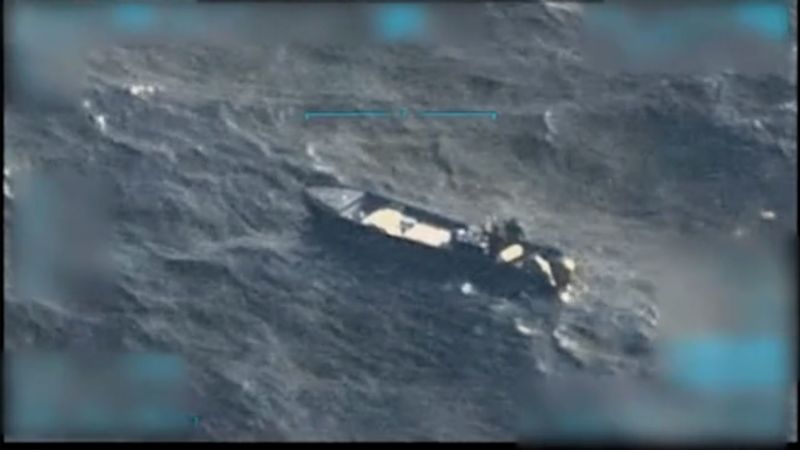
In a recent statement, former President Donald Trump said that the USA military has over again targeted a vessel purportedly transporting drugs from Venezuela. This action underscores the continued efforts with the aid of the U.S. to clamp down on drug trafficking operations originating from South America. Trump's remarks have sparked discussions about the effectiveness and implications of such military interventions.
The former president emphasized the significance of retaining a strong stance towards drug trafficking, highlighting it as a considerable threat to national security. The focused operation is part of a broader method to dismantle drug networks that have lengthy plagued the location. Trump, for the duration of his tenure, often encouraged for competitive measures to combat the drug exchange.
Venezuela has been diagnosed as a first-rate transit united states of america for unlawful drugs, specially cocaine, destined for the US and different global markets. The recent army movement reflects the continued commitment of the U.S. to disrupt those illicit sports. This approach involves collaboration with global partners to enhance maritime security and intelligence-sharing competencies.
The use of navy assets in counter-drug operations has been a topic of discussion amongst policymakers and experts. Critics argue that such moves threat escalating tensions and could have unintended outcomes. However, supporters claim that those measures are essential to guard American citizens from the unfavourable effects of drug abuse and addiction.
Trump's statement comes at a time when the U.S. is reassessing its foreign policy priorities in Latin America. The place faces severa demanding situations, such as political instability, economic hardships, and transnational crime. The former president's feedback underscore his perception in a sturdy military method to deal with those problems.
While the specifics of the operation remain categorized, Trump's statements recommend a persisted cognizance on maritime interdiction efforts. The U.S. navy has deployed belongings consisting of ships, aircraft, and personnel to screen and intercept suspicious vessels in key maritime corridors. These movements are intended to deter drug traffickers and limit their operational talents.
In recent years, the U.S. has multiplied its collaboration with local allies to fight drug trafficking. Joint sports, intelligence-sharing agreements, and capability-building initiatives have bolstered the collective ability to respond to these threats. The latest operation in opposition to the Venezuelan boat is indicative of this global cooperation.
Trump's assertion has been met with blended reactions from political leaders and analysts. Some applaud the decisive movement as a necessary step in the combat in opposition to capsules, even as others caution towards ability diplomatic fallout. The scenario highlights the complexity of addressing drug trafficking inside the broader context of U.S.-Latin America members of the family.
As the U.S. keeps to grapple with the challenges posed via drug trafficking, the function of the navy in those operations remains a essential factor of discussion. Balancing enforcement with diplomacy and improvement efforts is critical to achieving long-time period fulfillment. The recent operation serves as a reminder of the persistent nature of the drug change and the want for complete strategies.
Ultimately, the effectiveness of navy interventions in combating drug trafficking will rely on sustained political will and worldwide collaboration. Trump's current remarks have reignited a communique about the excellent strategies to tackle this enduring problem. As the state of affairs evolves, stakeholders will want to assess the effects of such operations and adapt their techniques as a consequence.










